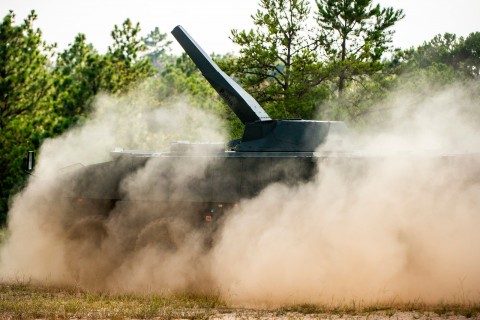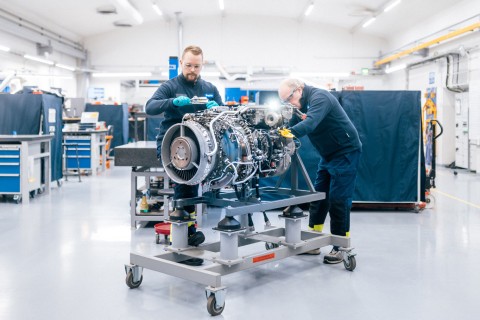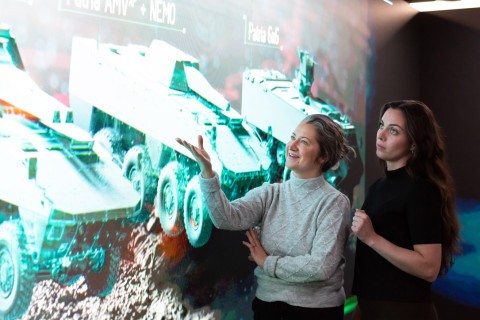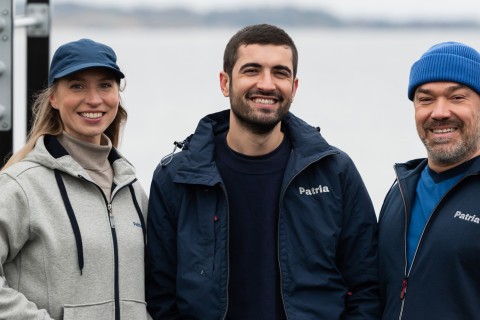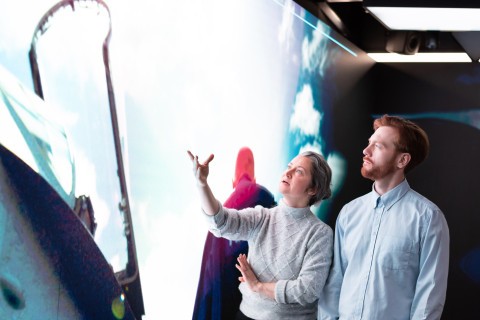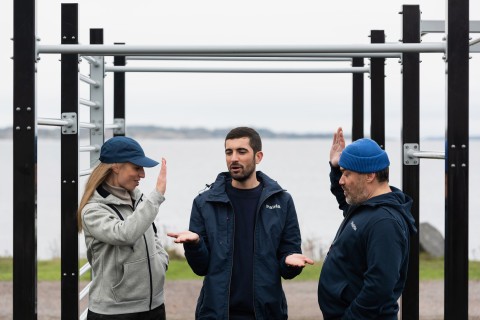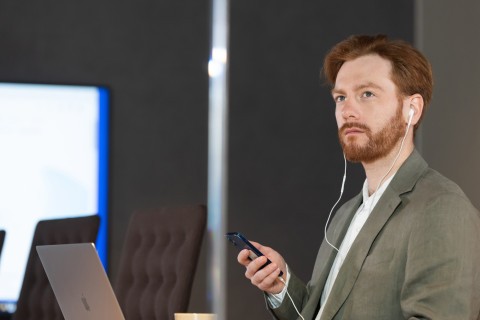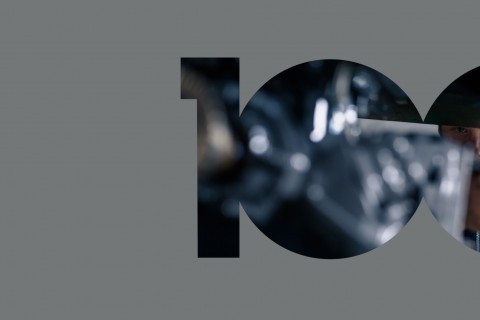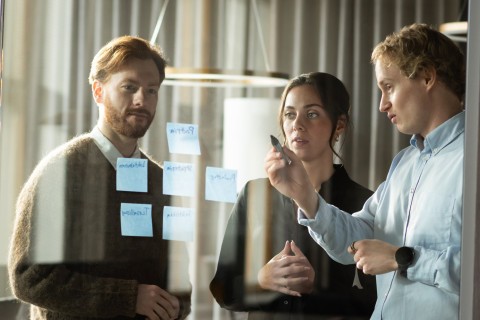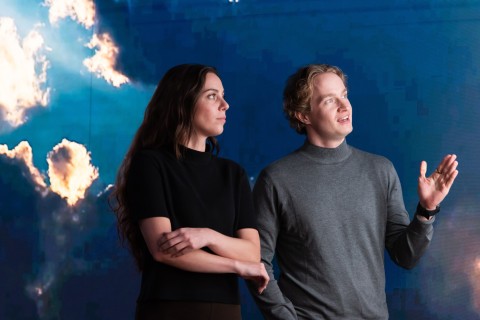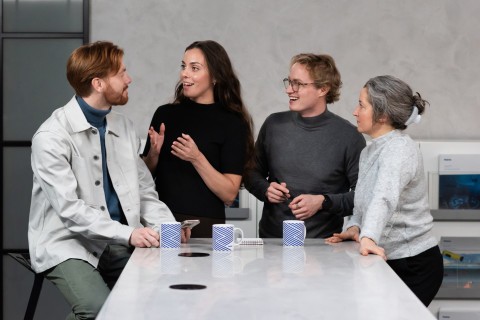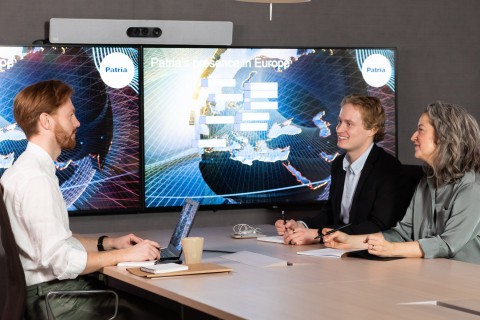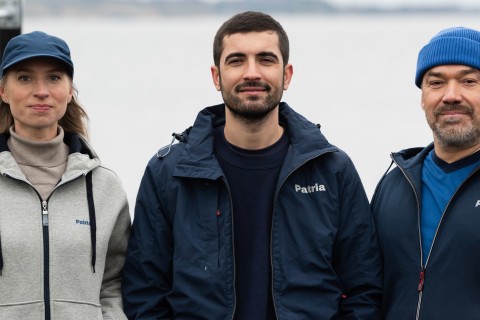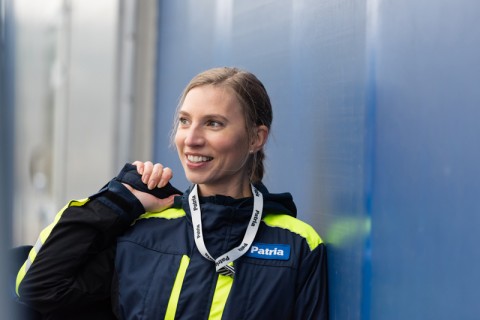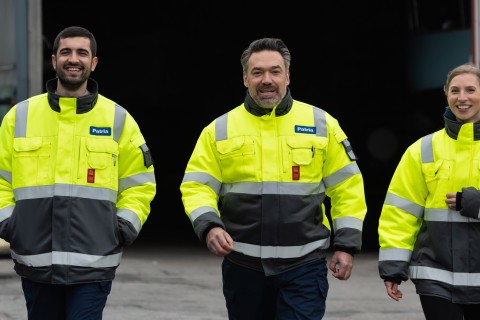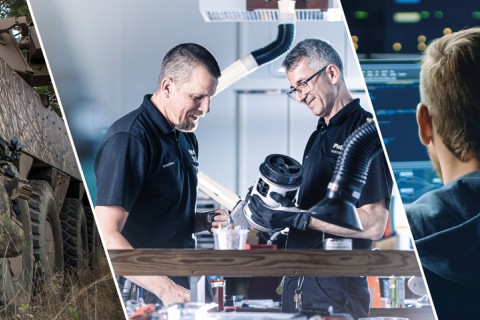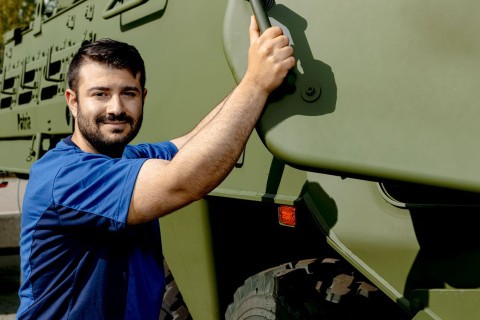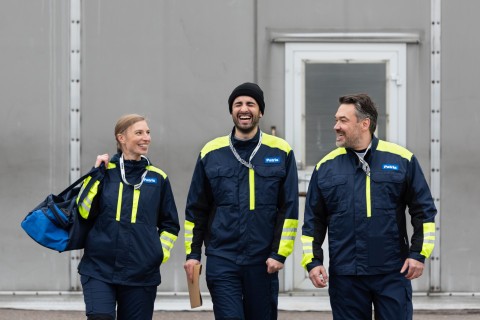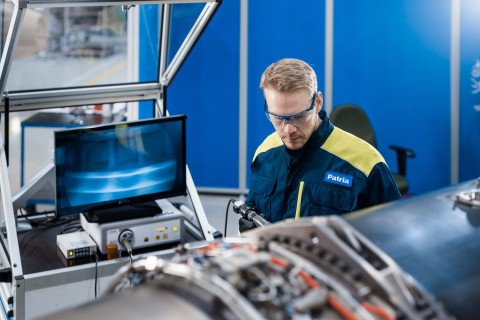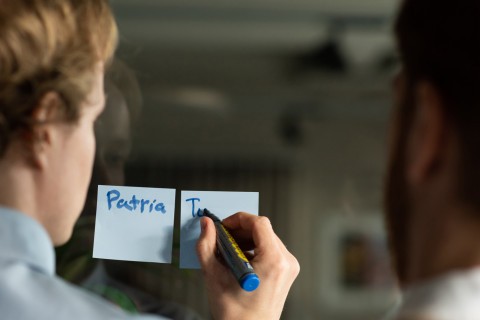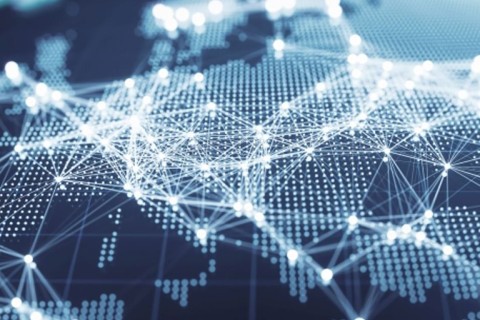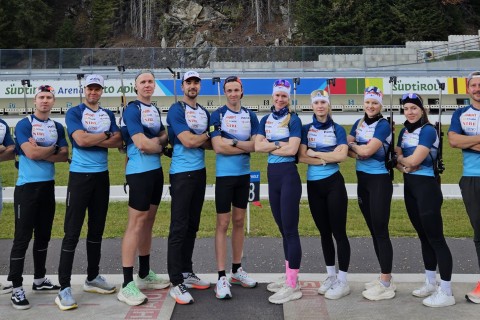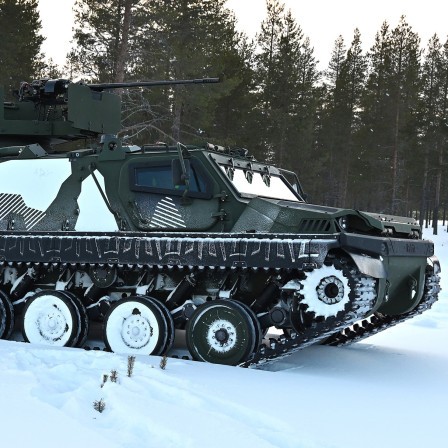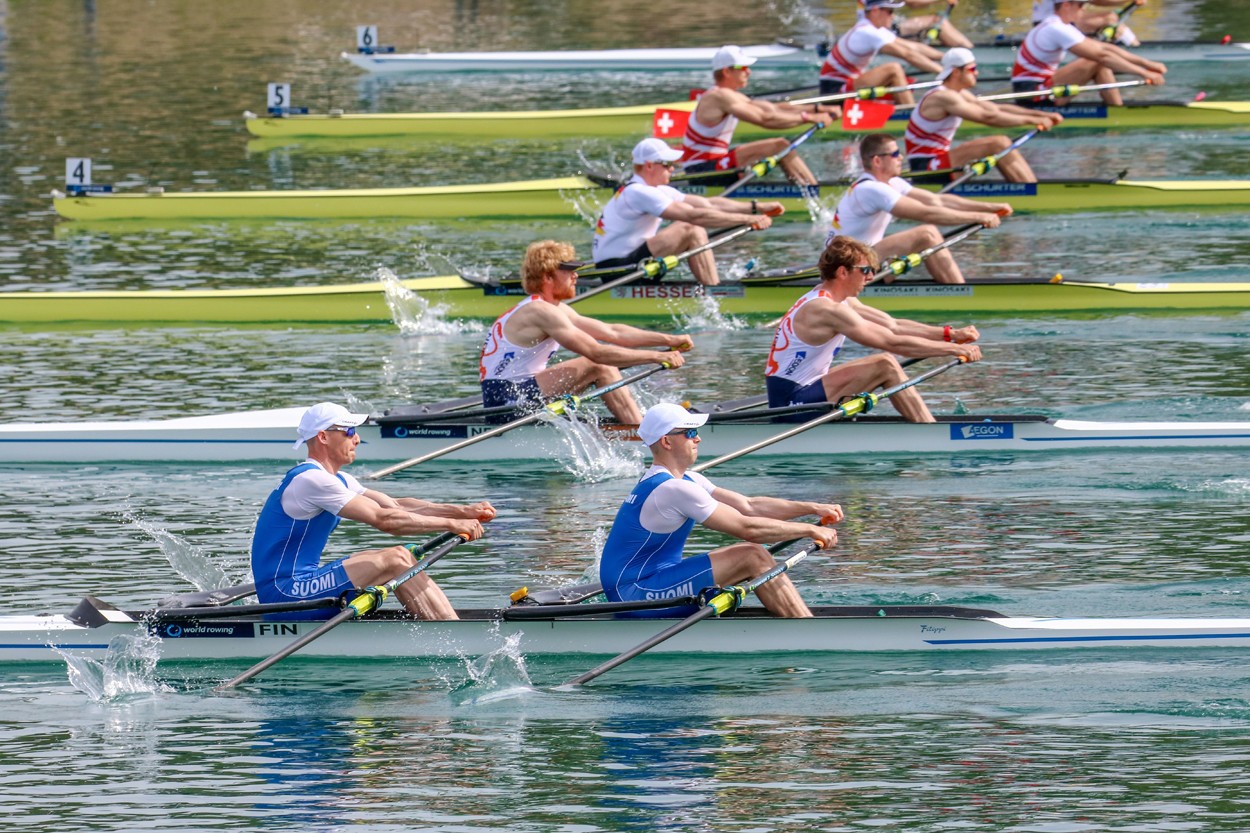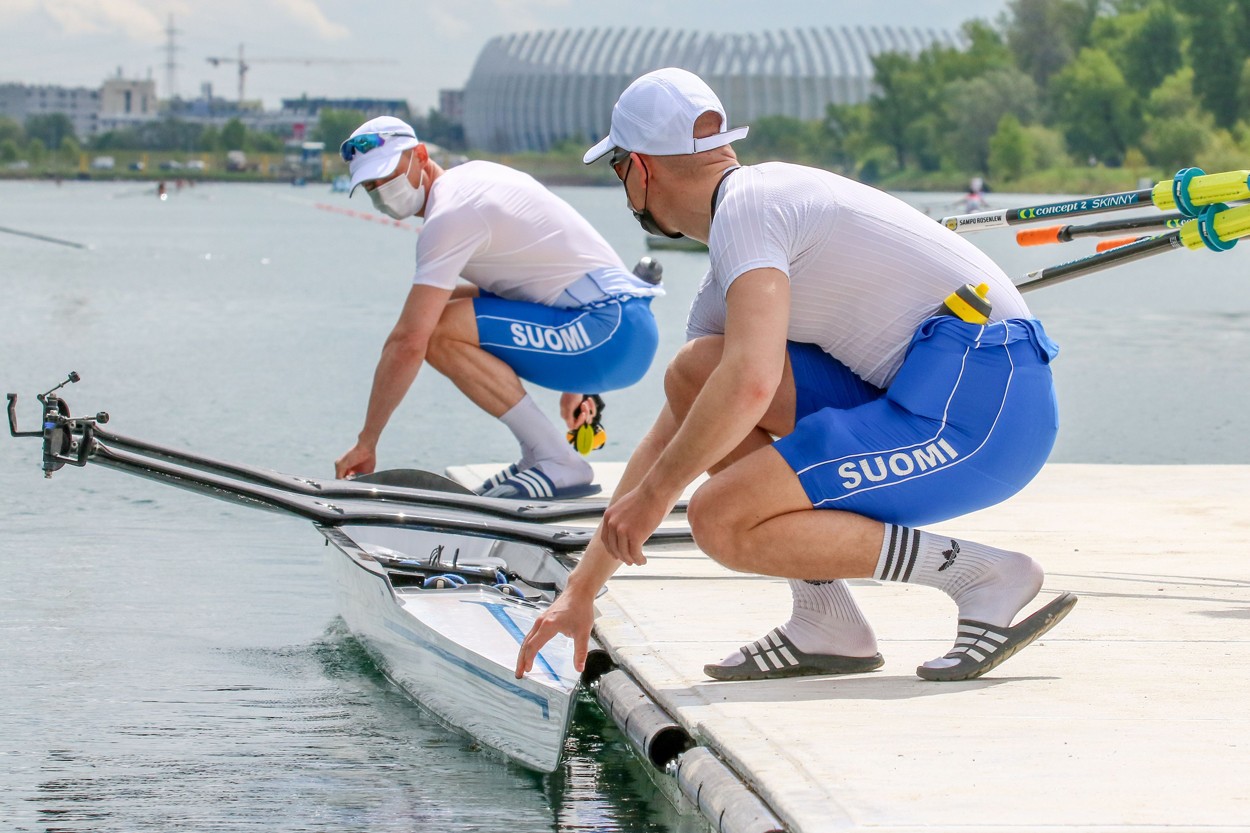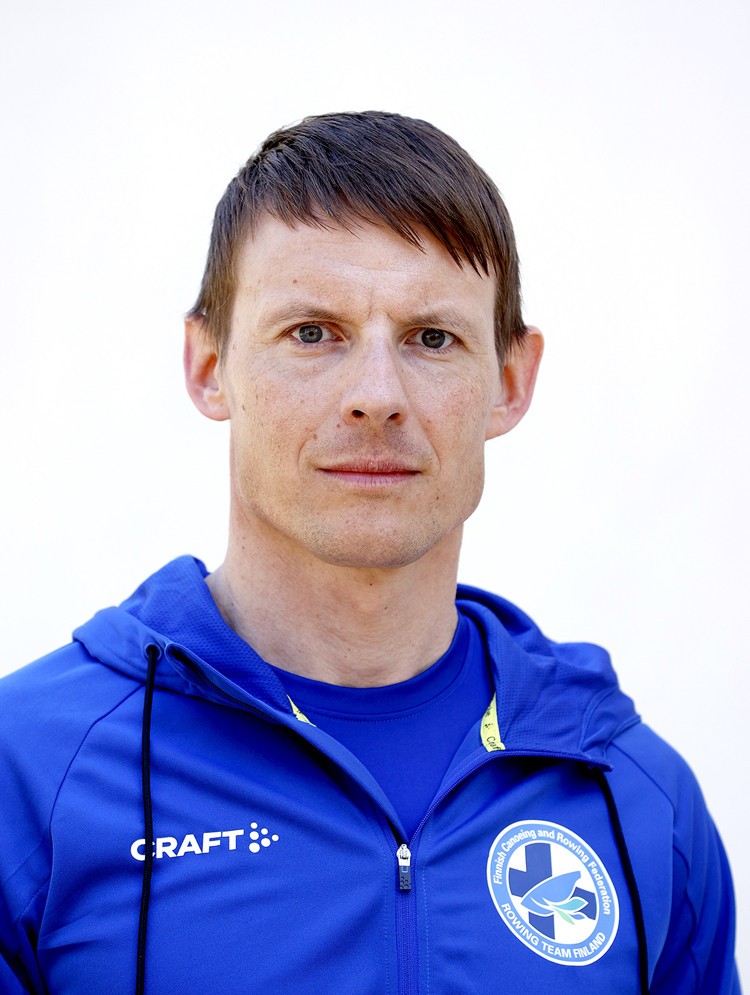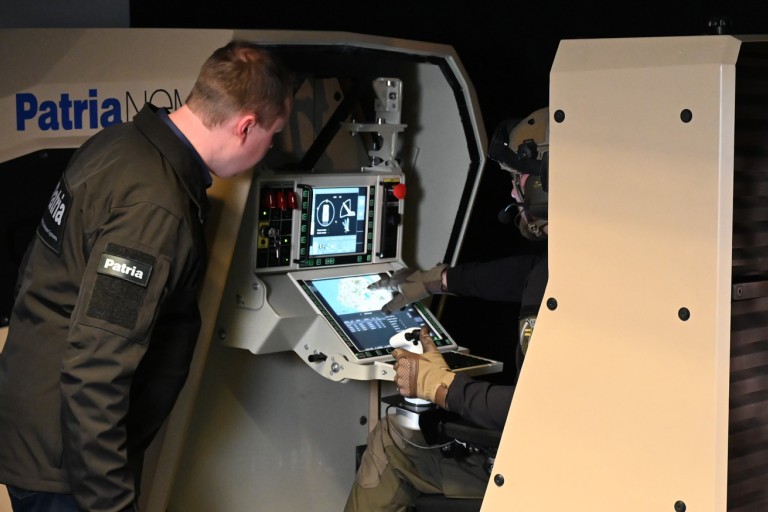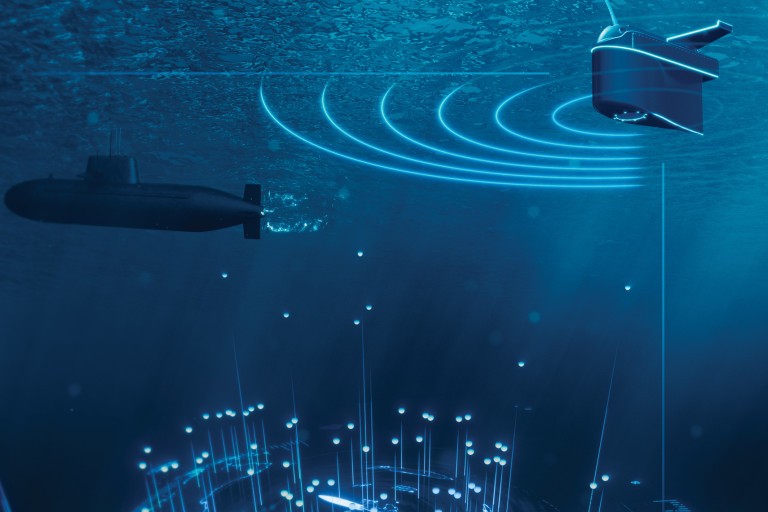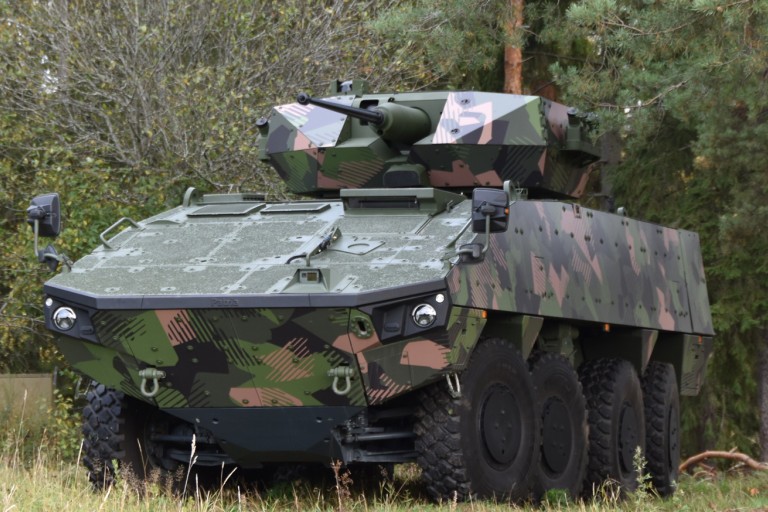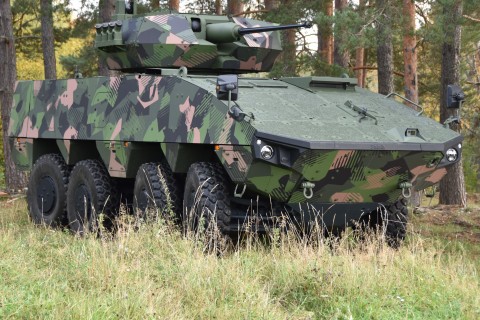
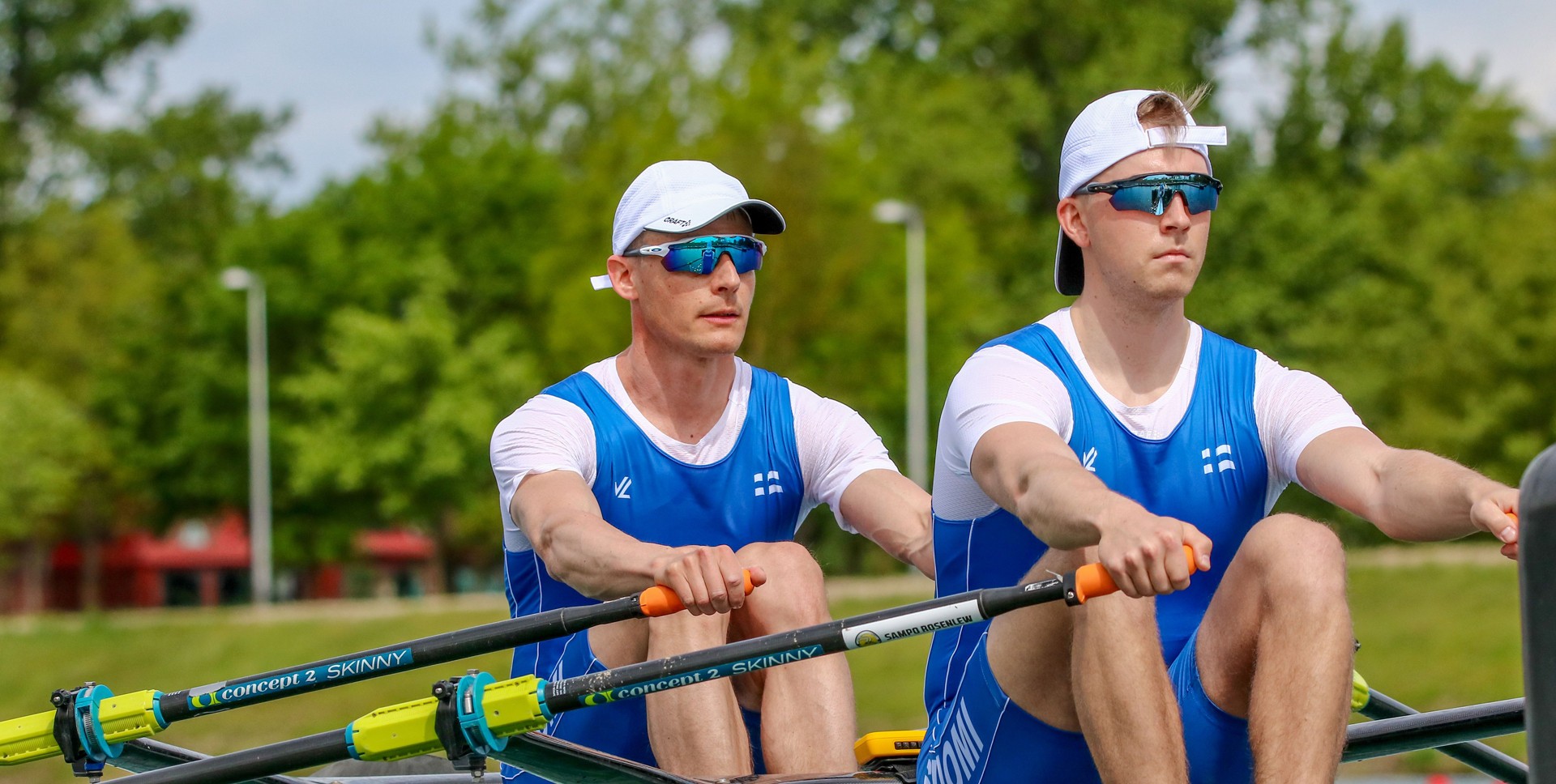
Meet the people of Patria
Jukka-Pekka Kauppi, Senior Specialist, Signal Processing
Teamwork bears fruit at work and in top-level sport
Jukka-Pekka Kauppi studied signal processing in the IT degree programme at the Tampere University of Technology. His postgraduate studies led to a doctoral thesis that covered the analysis of mass datasets, such as functional brain images and radar signals, with the aid of machine learning. After completing his doctoral thesis, Kauppi continued his career as a researcher at the Universities of Helsinki and Jyväskylä before transferring to Patria three years ago.
He now works as a Signal Processing Expert in Patria's Tampere team, which develops passive sensors for electronic intelligence and surveillance. Patria's ARIS system can be used to measure, identify, collect and perform a post analysis of primarily radar signal transmissions. These results can then be used to form a tactical situational picture of events in the spectrum and create signal libraries for other systems.
“I was already familiar with Patria from my student days, as I did my Master’s thesis for them on the same topic.”
Interesting and challenging tasks
Kauppi has greatly enjoyed his time at Patria. The work is both interesting and challenging. It is also important for him to be part of a team that has a good team spirit and clear goals.
“If you do your work as expected and meet your goals, then you can expect similar flexibility and freedom from your employer in terms of organising your time and tasks.”
The work is both interesting and challenging and Kauppi has greatly enjoyed his time at Patria.
Kauppi values flexibility, as he also fits competitive rowing in between his work and family life. Fitting three things together can sometimes mean planning your daily routine down to the second.
“Top-level rowing requires huge amounts of training. Competitions, equipment maintenance and equipment transport also take up plenty of time.”
“If you do your work as expected and meet your goals, then you can expect similar flexibility and freedom from your employer in terms of organising your time and tasks.
Good cooperation is also required in the boat
Rowing became Kauppi’s number-one sport when leg trouble forced him to give up competitive running. When he was younger, he was one of Finland’s top middle-distance runners.
Kauppi started indoor and church boat rowing ten years ago, but the Olympic rowing classes – whose boats are highly streamlined and unstable – soon became his sport of choice. He is currently focusing on the double scull with his crewmate Antti Koiranen.
Although the two only became a pair in January of this year, they have found it easy to cooperate and have become one of the best in their class in Finland.
During the spring, Kauppi and Koiranen took part in three world-cup competitions in Zagreb in Croatia, Lucerne in Switzerland, and Sabaudia in Italy. These competitions brought together the world’s best rowers.
“It’s been really interesting to compete against the absolute best in the sport.” At global level, the competition in the double sculls is extremely tough.
Rowing requires endurance, strengt and technique
Jukka-Pekka Kauppi has been satisfied with his first world-cup competitions. The Finnish double took fifth place in the B final in Zagreb, and won the D Final in the extremely high-class competition in Lucerne. In Sabaudia, the level was again high-class but the overall number of competitors was low, which meant that only an A final was competed in addition to the heats and a repechage.
“Although we didn’t reach the A final, the repechage was our best race together so far.”
Kauppi is attracted to competitive rowing by virtue of its demanding nature. The race distance in rowing is 2,000 metres – and covering that distance at full throttle requires not only endurance and good oxygen uptake, but also a great deal of strength.
He strives to increase his endurance by doing as much training on the water as possible. You can row until November on Lake Kaukajärvi in Tampere. After that, rowers who aren’t afraid of the wind and cold can move to the Ratina backwaters, where you may still find open water during the winter.
Kauppi also practices with rowing ergometers at the gym, where he also does his regular strength training.
“Although top-level competitive rowing requires extremely good physical fitness, everything is based on good rowing technique. It’s not helpful to be at the peak of physical condition if you can’t harness your abilities to propel the boat forward. When training, you must always pay attention to enhancing your technique. On top of that, when rowing in teams boats, every stroke cycle must be completely synchronized between rowers.”
“There’s always room for improvement. In a way, it’s the constant pursuit of perfection.”
Meet the people of Patria
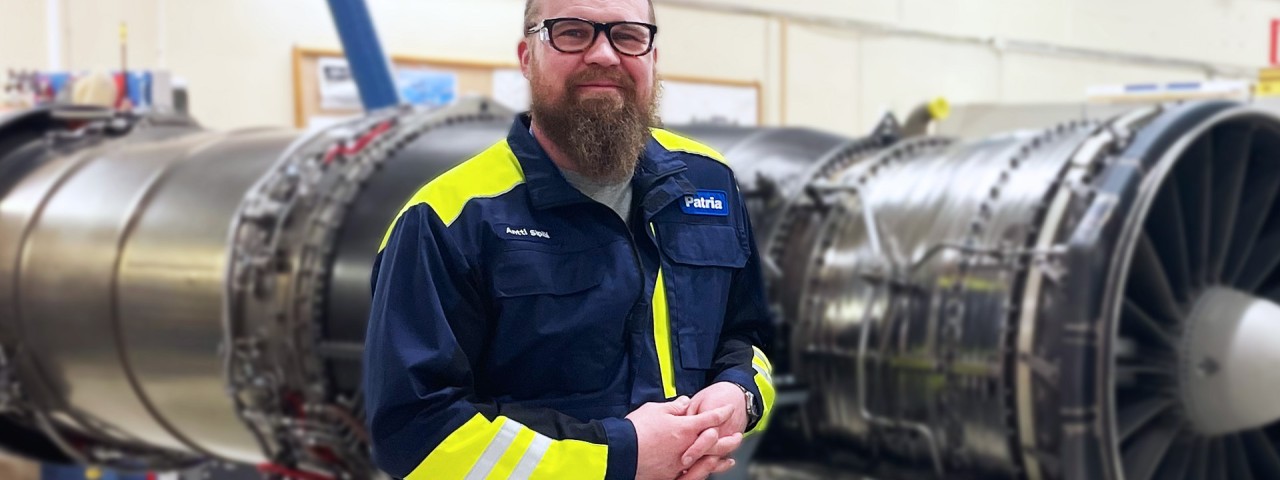
Meet the people of Patria
As a Manager, ensuring that everyone can work efficiently is my top priority.
Antti Sipilä, Manager, Gas Turbines
Read Antti's story
Meet the people of Patria
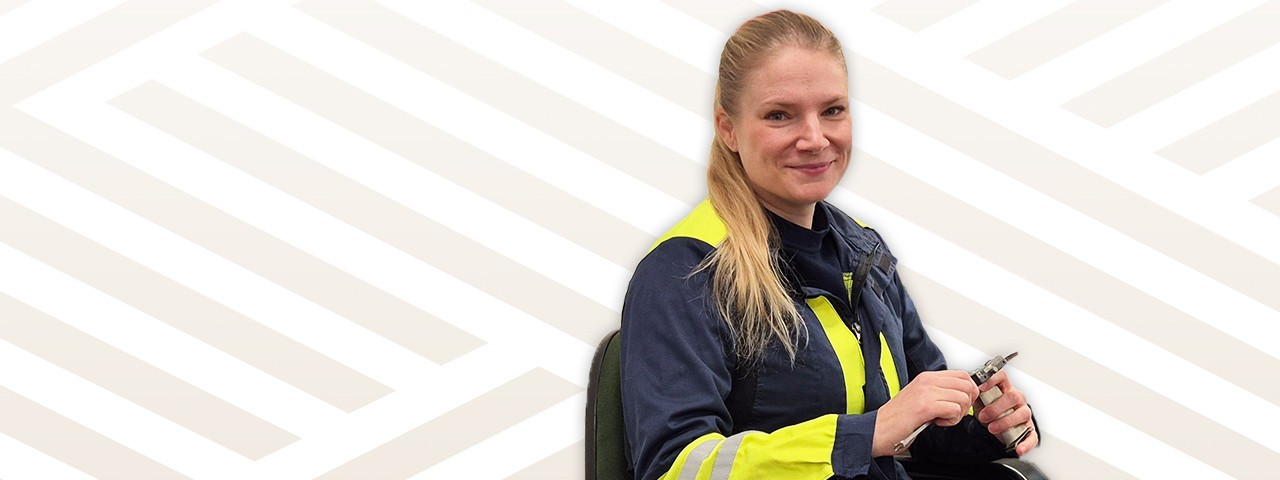
Meet the people of Patria
At Patria, my supervisor has recognised my strengths as an employee and wants to make the most of them at work.
Johanna Lehto, Mechanic and Inspector
Read more about Johanna
Meet the people of Patria
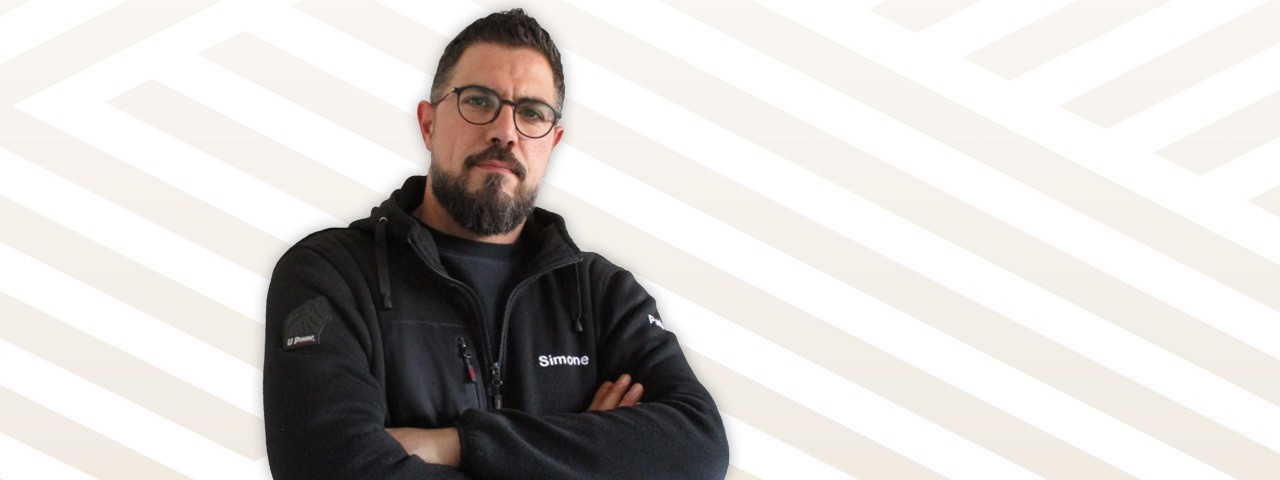
Meet the people of Patria
Talking with colleagues, I've noticed how proud they are of Patria as their employer.
Simone Lombardo, Production Manager
Read more about Simone
